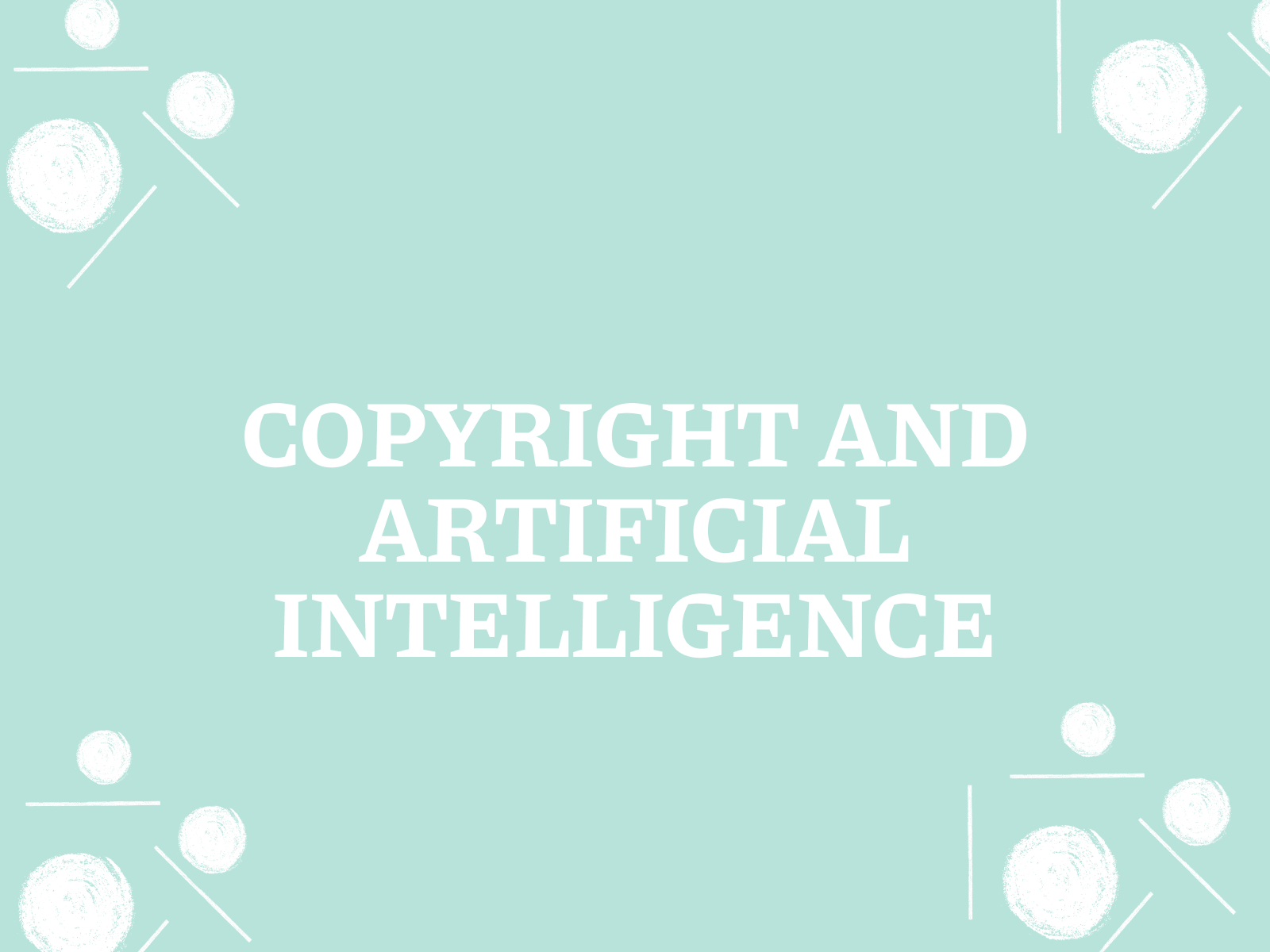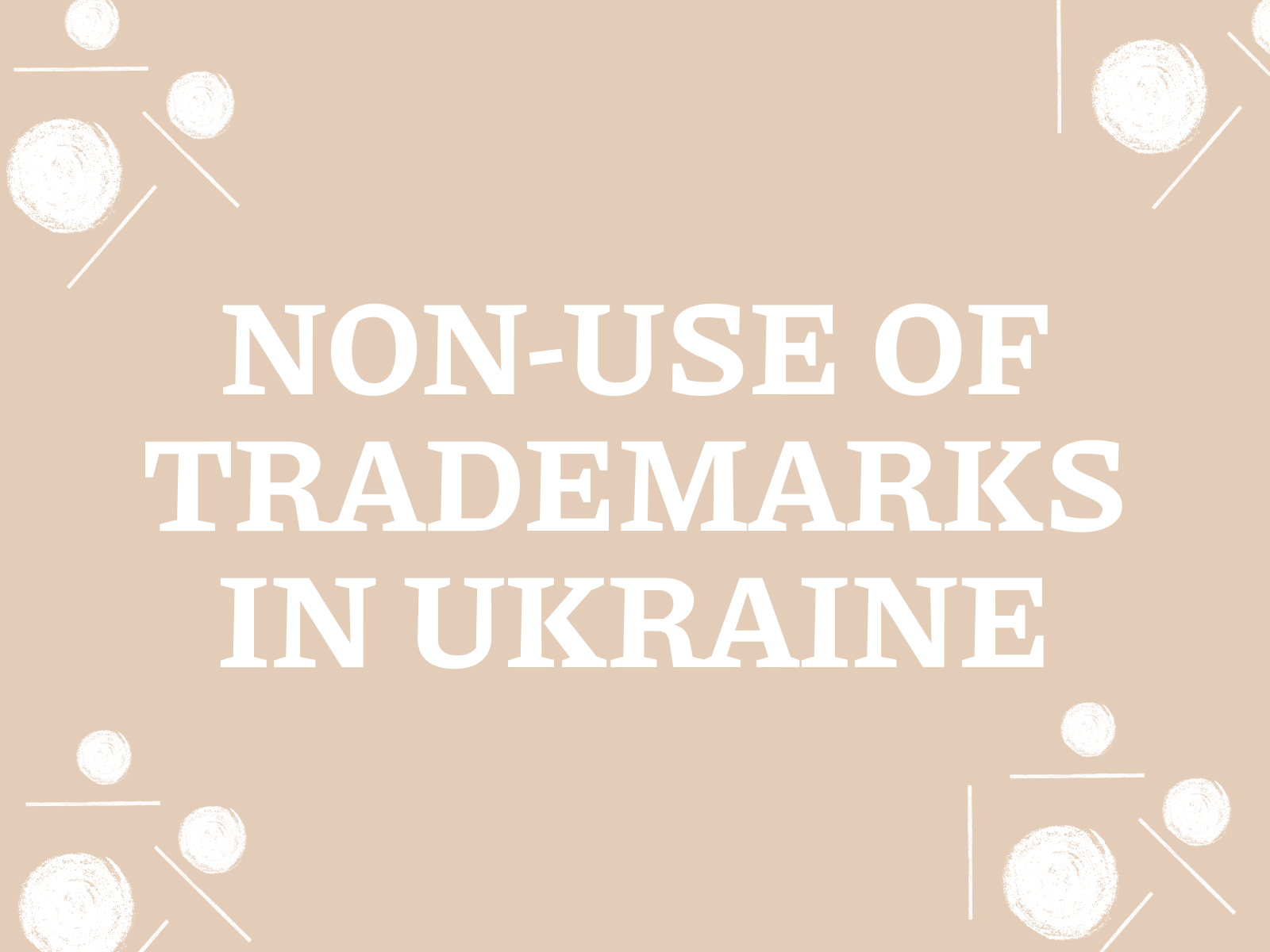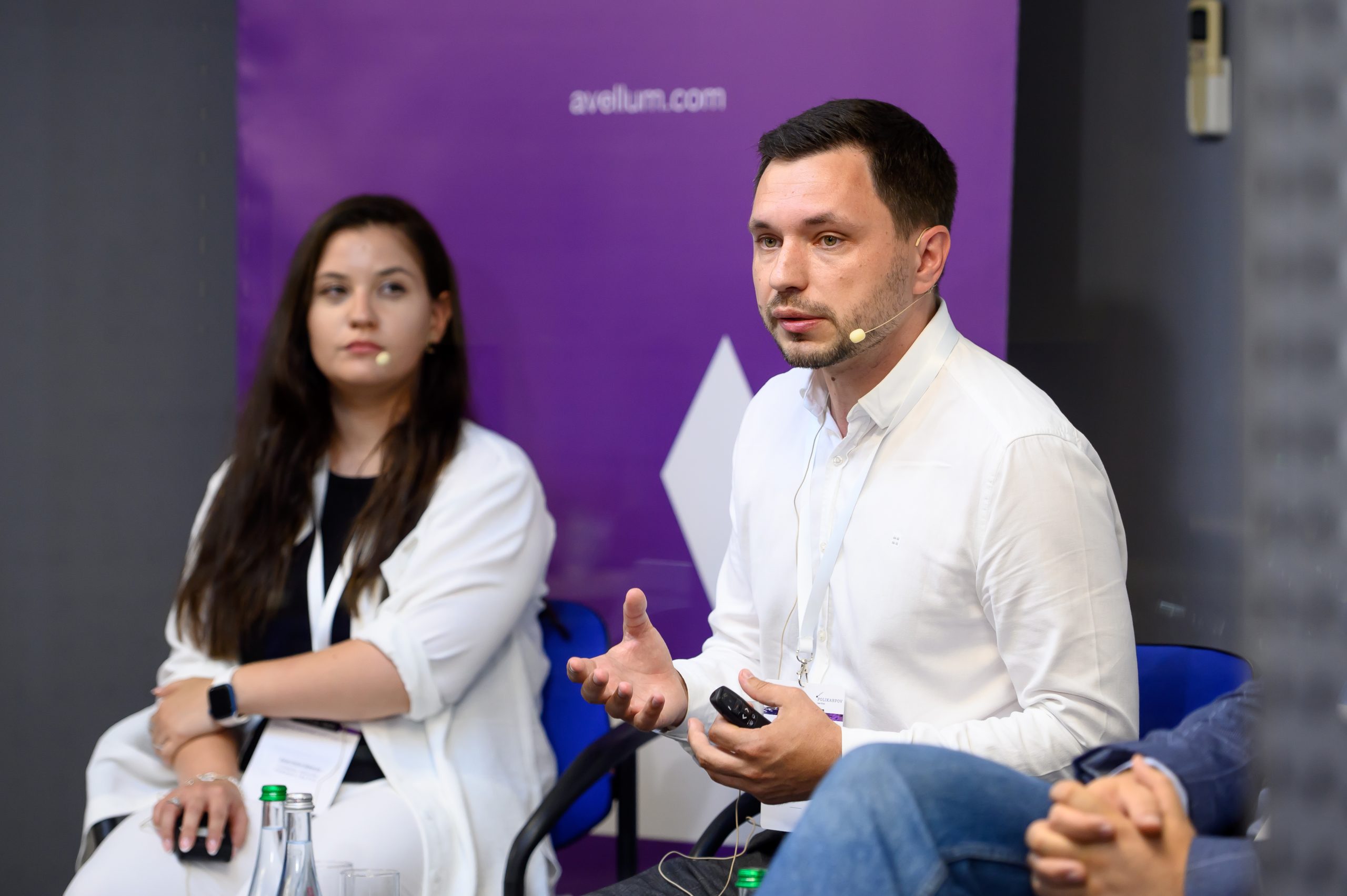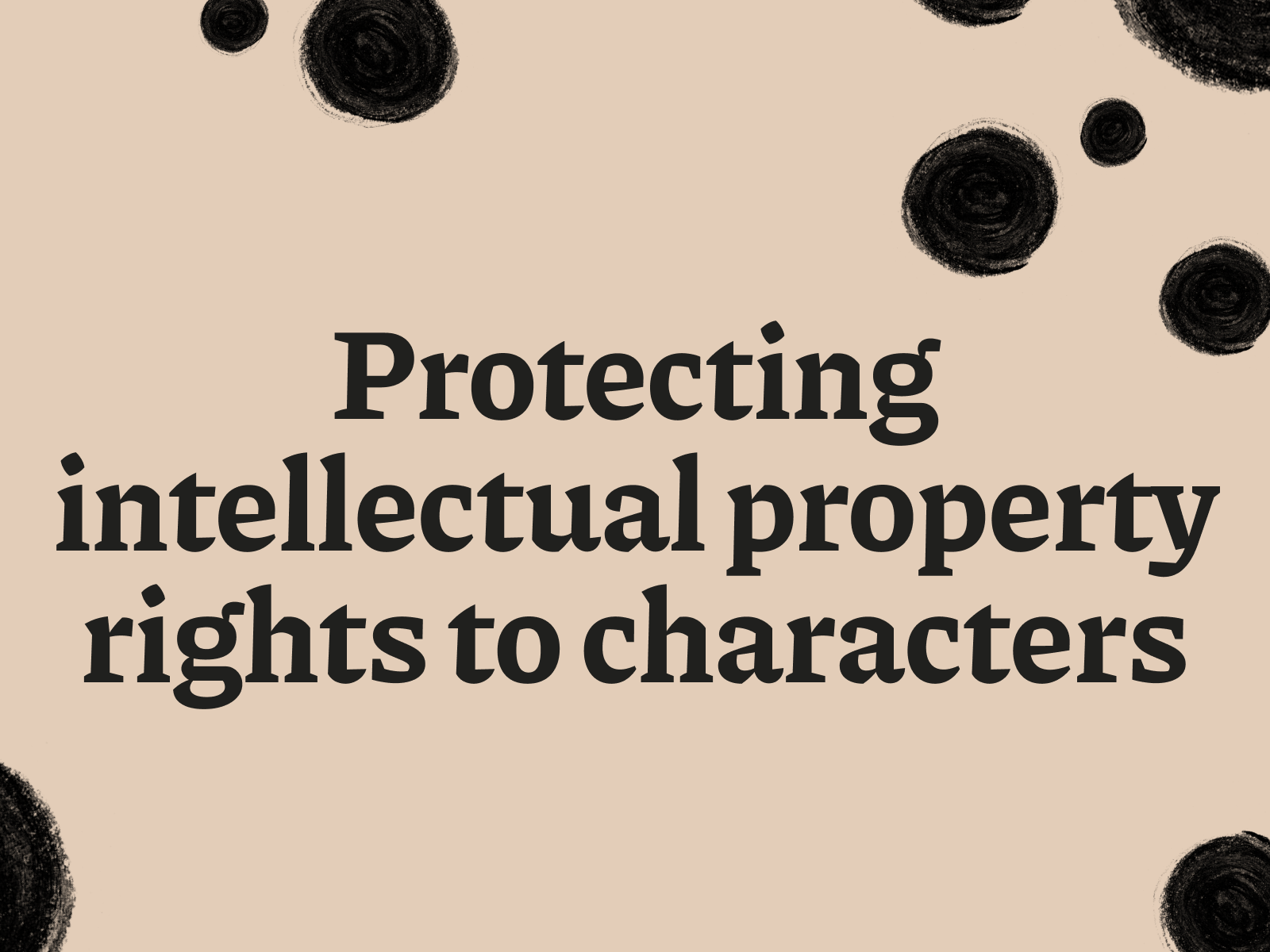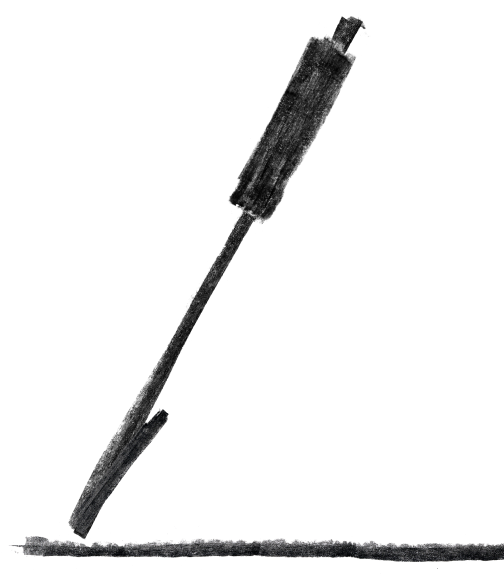Neural networks such as ChatGPT are rapidly penetrating our lives. Copyright for artificial intelligence content is not just a topic for science fiction, but a pressing issue that more and more people are facing. ChatGPT already writes articles, scripts, poems, and even software code. But what about copyright for content created by artificial intelligence? Who owns such content and how can it be used legally?
Chapter 1: Authorship of AI-generated content
The emergence of ChatGPT and similar neural networks has caused a real explosion in the world of content. However, the excitement about the possibilities of AI raises a question that confuses both creators and lawyers: who owns the rights to content generated by artificial intelligence? Can a machine be an author in the legal field, where this concept is traditionally associated with humans? In this section, we will delve into the legal jungle of authorship of AI content and try to figure out who is the real owner of texts, images and code created not by human minds but by complex algorithms.
1.1. Legal status of AI: We consider the legal status of artificial intelligence in Ukraine and the world. Can ChatGPT be an author in the legal sense?
The emergence of ChatGPT and similar neural networks has raised a question that neither Ukrainian legislation nor the legal systems of most countries have yet answered unequivocally: what is the legal status of artificial intelligence?
Today, the legal field clearly associates the concept of authorship with a human being, a creator endowed with consciousness, will and the ability to bear responsibility for the results of his or her intellectual activity. In this context, artificial intelligence is seen only as a tool, a means of implementing human creative ideas.
Can ChatGPT be an author in the legal sense? Given the current legal norms, no. ChatGPT, like other neural networks, is not recognised as a legal entity. It does not possess such attributes of authorship as awareness of its actions, intent, and the ability to bear responsibility.
We are convinced that the rapid development of artificial intelligence will inevitably lead to a rethinking of existing legal paradigms. Discussions are already underway about the need to develop new legislation that would regulate the status of AI and its legal relations in the field of intellectual property.
Perhaps, soon the world will see laws that will clearly define the concept of authorship in relation to content created by artificial intelligence, and establish its rights and obligations. In the meantime, it remains to be seen how this interesting and promising area of law will develop.
1.2. Property vs authorship: We analyse the difference between the concepts of authorship and ownership in relation to content created by artificial intelligence. Who owns the copyright – the AI developer, the user, or no one?
When it comes to content generated by artificial intelligence, there is confusion between two important concepts – “authorship” and “ownership”. And while the former is more or less clear (at least at this stage of AI law development), the question of ownership of such content remains open.
- The authorship of, as we have already found out, presupposes the presence of a creator – a person who consciously invests his or her intellect, skills, and talent in the work. AI acts as a tool, a means to create something new.
- Ownership means possessing the right to use and dispose of the property, in this case, the content generated by AI.
So who owns the copyright to such content? There is no definitive answer to this question yet. Let us consider several possible options:
- AI developer: it would be logical to assume that the owner is the one who created the tool that generated the content. However, neural networks such as ChatGPT are trained on huge amounts of data, and it is not always possible to track which data influenced the creation of content.
- AI user: the user formulates a query, provides certain input data, based on which the AI generates content. Does this mean that the user becomes the owner of the result?
- No: there is an opinion that content created by AI cannot be copyrighted, and therefore has no owner.
The situation is complicated by the fact that neural networks are constantly evolving and becoming more autonomous in their creative process. And the more AI is capable of independent creativity, the more urgent the issue of legal regulation of its status and determination of the owner of the content it creates will become.
Section 2: Using ChatGPT in Ukraine: legal aspects
While the world is debating the nature of authorship in the world of artificial intelligence, ChatGPT has already become an accessible tool for millions of users, including in Ukraine. Writers, marketers, programmers – more and more professionals from various industries are turning to this neural network for help. But is such use always legitimate? What are the legal ways to use ChatGPT and what risks should be taken into account? In this section, we will examine ChatGPT law in action: we will explore the legal aspects of using this neural network in Ukraine.
2.1. Legal use of ChatGPT: We explore ways to legally use ChatGPT-generated content in Ukraine.
Although the issue of authorship of content generated by artificial intelligence remains controversial, this does not mean that ChatGPT cannot be used legally in Ukraine. The main thing is to understand the line between what is permitted and what is forbidden, and to follow certain rules.
Here are some ways to use ChatGPT-generated content legally:
- As a source of ideas and inspiration: ChatGPT can be a powerful tool for generating new ideas, finding non-standard solutions, and overcoming a creative crisis. Use it for brainstorming, creating drafts, and finding a direction for further work.
- For education and familiarisation: ChatGPT can provide information from various fields of knowledge, explain complex things in simple terms, and help you learn new topics.
- To automate routine tasks: ChatGPT can create simple texts, translate, write letters, and generate short descriptions. This will save you time and resources.
Important to remember:
- Always verify the information received from ChatGPT. The neural network does not always provide accurate and complete data.
- Don’t use ChatGPT-generated content without your own research. Remember that it is only a tool, not a substitute for your own expertise and creativity.
Following these simple rules will help you avoid problems with the law and make the most of ChatGPT.
2.2. Risks of copyright infringement: We consider the potential problems that can arise when using ChatGPT content without respecting copyright.
Although ChatGPT is a powerful tool, using it without taking into account copyright issues can lead to serious legal problems. Let’s take a look at some of them:
- Plagiarism: one of the biggest risks is unintentional copyright infringement by using content that is similar or identical to existing works. ChatGPT is trained on a huge number of texts, and there is a possibility that it may generate a fragment that has already been published before.
- Infringement of trademark rights and branded content: when creating a request to ChatGPT, it is important to ensure that it does not contain elements protected by intellectual property rights (company names, brands, slogans, unique images, etc.).
- Liability for false information: It is important to remember that ChatGPT does not always provide accurate information. The use of such content without careful verification may have negative consequences, and the person who disseminated such information will be responsible for them.
- Reputational losses: the discovery of the use of “someone else’s” or inaccurate content may negatively affect the reputation of both an individual specialist and the entire company.
To minimise the risks, we recommend:
- Thoroughly check the content generated by ChatGPT for plagiarism and accuracy of information.
- Use the platform only to get ideas and inspiration, not to copy ready-made texts.
- Always keep information about how the content was obtained (date, time, request to ChatGPT) to be able to confirm its origin.
- Consult lawyers, specialists in the field of intellectual property, for advice on the legality of using content generated by artificial intelligence.
Remember that ignorance of the law does not exempt from liability. Compliance with copyright rules is not only a legal necessity, but also a manifestation of respect for the work of others and a guarantee of your impeccable reputation.
Section 3: Practical tips and tricks
Navigating the world of AI content copyright can seem daunting. However, understanding the key aspects and following certain practical tips can help you avoid potential problems and protect your interests. In this section, we will provide specific recommendations that will be useful for both creators and users of ChatGPT content.
3.1. Protecting your interests: How to protect your copyrights when using ChatGPT, what documents to prepare?
While the legal status of AI-generated content is still evolving, there are practical steps you can take to protect your rights when using ChatGPT:
- Documenting the process:
-
- Keep a detailed history: record the requests you send to ChatGPT, the responses generated, and the editing options.
- Use metadata: add information about the use of ChatGPT to the file’s metadata (for example, in the “Author” field, specify “Created with ChatGPT”).
- Rely on your own strength: remember that protecting your rights is primarily your responsibility.
- Conclusion of contracts:
-
- Clearly define the terms of use: in contracts with customers or employers, clearly state that some of the content is created using ChatGPT and indicate what rights you transfer to such content.
- Consider an author’s agreement for AI content: although this type of agreement is not yet regulated by law, it can be an additional argument in your favour in case of disputes.
- Transparency and openness:
-
- Disclose the use of AI: let your audience or customers know that some of the content is created using ChatGPT. This will promote transparency and understanding.
Strict adherence to these guidelines will help you minimise risks and build a successful and legitimate strategy for using artificial intelligence in your
3.2. Need help with copyright issues related to AI-generated content?
While following the above guidelines will help minimise risks, there is always a possibility of unforeseen situations arising in the field of intellectual property. If you have any questions regarding copyright in the content created by ChatGPT, or if you need professional legal advice on ChatGPT and its use, please contact Polikarpov Law Firm.
We have extensive experience in the field of intellectual property and work with the latest technologies, including artificial intelligence.
Our lawyers will provide you with comprehensive support on all issues:
- Consultations on copyright law for content created with the help of AI. We will help you dispel any doubts and understand your rights and obligations when using ChatGPT.
- Drafting agreements governing the use of AI content. We will help you to conclude a copyright agreement for AI-generated content that will meet your interests and protect you from potential risks.
- Copyright registration for AI-generated content. At your request, we will take care of all issues related to the registration of your copyright.
- Protection of your rights in court in case of disputes: We will provide you with professional representation and protection of your interests in court.
We work with clients from all over Ukraine, including Kyiv, Kharkiv, Odesa and Dnipro. Wherever you are, our lawyers are always ready to provide you with expert assistance.
Contact us today to learn more about our services and to schedule a consultation.
Conclusion.
The emergence of ChatGPT and similar neural networks has become a real break through, while raising a number of complex issues for lawyers and creators. The main one is who owns the copyright to the content created by artificial intelligence?
So far, there is no clear answer to this question. Legislation in most countries, including Ukraine, associates authorship with a human being endowed with consciousness and the ability to bear responsibility. AI is seen as a tool, not a creator.
However, this does not mean that the use of ChatGPT is illegal or cannot be protected by copyright. It is important to understand the boundaries between what is permitted and what is prohibited, follow the basic rules of use and copyright protection, and be prepared for the fact that the legal field in this area will be actively developing in the coming years.
We are convinced that artificial intelligence has enormous potential and can become an indispensable assistant in various fields of activity, including creativity. It is already important to work on creating a clear and understandable legal framework to regulate copyright issues for content created with the help of AI. This will help avoid disputes, protect the interests of all parties and promote the development of both technology and creativity.
Can I use music created with AI for commercial purposes, for example, sell it on music platforms? What difficulties may arise?
The issue of commercial use of music created by artificial intelligence is indeed a complex one and does not have a clear answer. Although at first glance it seems logical that the creator of the AI or its user has the right to commercialise the product, the legislation of many countries, including Ukraine, does not yet have a clear position on this issue.
Here are some of the difficulties that may arise:
- Lack of recognition of AI authorship: As mentioned in the article, copyright in most countries of the world is currently reserved for humans, not machines. Therefore, the question arises whether a work created without human intervention can be protected by copyright.
- Rights to the source material: Music-creating AI is trained on a huge database of existing works. There is a risk that the generated melody may contain elements protected by the copyright of other composers. This can lead to claims from copyright holders.
- Unclear terms of use of AI: The terms of use of music creation software may contain restrictions on the commercial use of the generated works. It’s important to read these terms carefully before you start.
- Reputational risks: Some music platforms and labels may be reluctant to work with AI-generated music for fear of negative audience reaction or legal complications.
Recommendations:
- Pay attention to the terms of use of the music creation software.
- Make sure that the music you generate does not infringe on the copyrights of third parties.
- Consult with a lawyer specialising in intellectual property to get clarification on the law and your specific case.
- Be prepared for the fact that the commercial use of AI-generated music may be subject to litigation.
Despite the existing challenges, AI-generated music has great potential. As technology advances and legislation improves, we are likely to see its popularity grow and new business models emerge in the music industry.
Are there any examples of court cases in Ukraine or the world that have addressed the issue of copyright for AI-generated content? What are the precedents?
Although the topic of copyright in AI-generated content is relatively new, there are already precedents of court cases dealing with this issue.
International experience:
- The case of the “monkey selfie” (Naruto v. Slater, 2015-2018): There is a well-known case when photographer David Slater tried to defend the copyright of a photograph taken by a monkey with his camera. The US courts reviewed the case several times, and eventually it was decided that no copyright in the photo arose, since only a human can be the subject of it. This case, although not directly related to AI, set an important precedent that influenced further discussions on authorship in the field of AI.
- The case of the DABUS system (Thaler v. Comptroller-General of Patents, Designs and Trade Marks, 2019-2021): Inventor Stephen Thaler tried to register a patent for an invention made by an AI system called DABUS. The courts of the UK, the European Patent Office, and the US refused to register the invention, arguing that only an individual can be the author of the invention.
Important conclusions:
- Existing precedents show that courts tend to interpret copyright conservatively, favouring human creators.
- The lack of clear legislative regulation creates legal uncertainty and complicates the protection of rights to AI-generated content.
It is important to monitor the development of court practice in this area, as it will play a key role in shaping the legal regulation of AI in the future.
How can ChatGPT be used for copyright infringement other than direct copying of text?
Although ChatGPT is often associated with direct copying of text, it can be used for more subtle copyright infringements that are not always obvious at first glance. Here are some examples:
- Creating derivative works: ChatGPT can be used to create derivative works based on existing copyrighted works. For example, a user can provide ChatGPT with a novel and ask it to create a film or play script based on the novel.
- Paraphrasing and compilation: Instead of directly copying text, ChatGPT can be used to paraphrase or compile fragments from different sources. Although the final text may be different from the original, it may still infringe copyright if it contains a substantial part of the original work.
- Creating works in a certain style: ChatGPT can be trained to create works in the style of certain authors or genres. For example, it can be used to write a song “in the style” of a famous artist. Although such a song may be original in terms of lyrics and melody, it may still infringe copyright if it is found to be an imitation of another author’s style.
- Unauthorised use of characters or storylines: ChatGPT may be used to create works that use characters or storylines from existing works without the permission of the copyright holder.
- Generating images and music that are similar to existing works: Although the question refers to ChatGPT, it is worth noting that there are other AI tools that can create images and music. They can also be used to infringe copyright by generating works that are similar to existing works.
Important to remember: The responsibility for copyright infringement lies with the AI user, not the tool itself. Therefore, it is important to use AI responsibly and carefully, checking the originality of the created content.
Are there any ethical aspects of using the content created by ChatGPT that we should consider?
The emergence of ChatGPT and other generative AI tools has opened a Pandora’s box not only from a legal but also from an ethical point of view. Even if the use of AI-generated content is not against the law, it can cause ethical dilemmas. Here are some aspects to consider:
- Transparency and disclosure: Is it ethical to use AI-generated content without disclosing this fact? For example, is it ethical to pass off a poem written by ChatGPT as your own work? Or publishing AI-generated news without attribution? Lack of transparency can mislead audiences and undermine trust.
- Impact on the creative professions: The widespread use of AI for content creation may have a negative impact on people engaged in creative professions. Artists, musicians, and writers may face competition from AI that can create content faster and cheaper. It is important to find a balance between using technology and supporting human creativity.
- Manipulation and disinformation: ChatGPT and other AI tools can be used to create fake news, propaganda and other harmful content. This raises serious ethical questions about responsibility for spreading disinformation and manipulating public opinion.
- Loss of authenticity and originality: Excessive use of AI for content creation can lead to a loss of authenticity and originality in art, literature and other areas. It is important to preserve the uniqueness of human experience and worldview.
- Responsibility for AI-generated content: Who is responsible for AI-generated content if it violates ethical norms or damages the reputation of individuals? Is it the AI developer, the user, or no one? This is a complex question that has no clear answer yet.
The use of ChatGPT and other AI tools should be based on ethical principles such as transparency, responsibility, and respect for human dignity. It is important to have an open discussion about the ethical aspects of artificial intelligence and to develop a responsible attitude towards its use.
What are the prospects for the development of legislation in Ukraine on copyright for AI-generated content?
Ukrainian law, like the laws of many other countries, does not yet have a clear answer to the question of copyright in AI-generated content. However, given the rapid development of technology and the growing number of controversial situations, several possible prospects can be identified:
- Preserving the status quo: In this scenario, copyright in AI-generated content is not recognised, as AI is not considered a subject of law. This approach is the simplest from the legal point of view, but it may hinder the development of AI technologies and create legal uncertainty.
- Introduction of the concept of a “computer work”: Some countries are considering the possibility of introducing a separate type of copyright object – “computer works” created with the help of AI. In this case, copyright may belong to the AI developer, the user or their joint ownership.
- Recognition of limited copyright for AI: It is possible that AI will be granted limited copyright for the content it creates, for example, for a certain period of time or with certain restrictions on use.
- Creation of a special legal protection regime: Instead of copyright, a special legal protection regime may be created for AI-generated content, which will take into account the specifics of its creation and use.
- Harmonisation of legislation with international norms: Ukraine is likely to take into account the experience of other countries and international organisations in the field of AI and copyright regulation.
Important factors that will influence the development of legislation in Ukraine:
- The pace of development of AI technologies and their implementation in various spheres of life.
- The position of Ukrainian and international experts in the field of intellectual property.
- Interests of rights holders, AI developers, and users.
- The need to create a favourable investment climate for the development of AI technologies in Ukraine.
It can be expected that the issue of copyright for AI-generated content will remain the subject of active discussions and legislative initiatives in Ukraine in the coming years.
- The Law of Ukraine “On Copyright and Related Rights”. Reference.
- Berne Convention for the Protection of Literary and Artistic Works. References.

